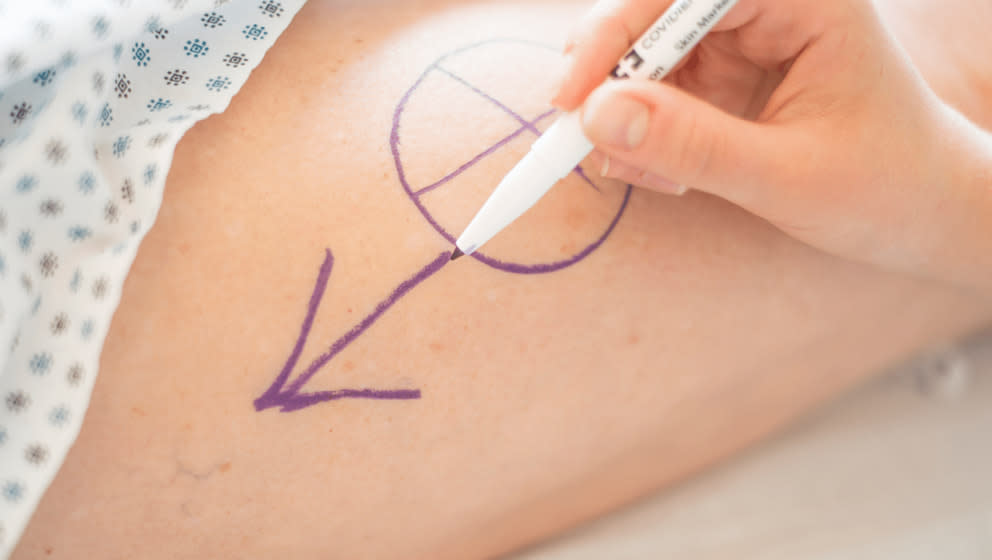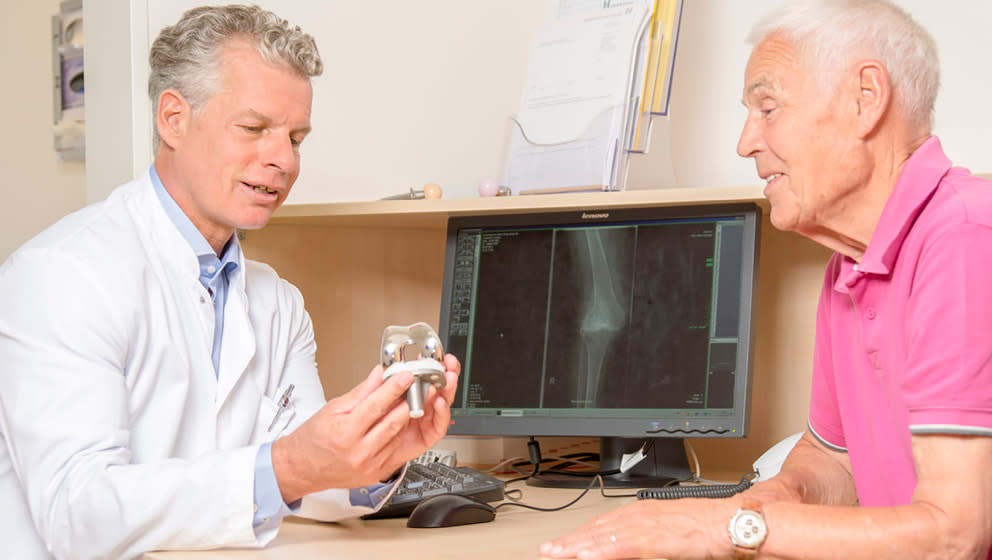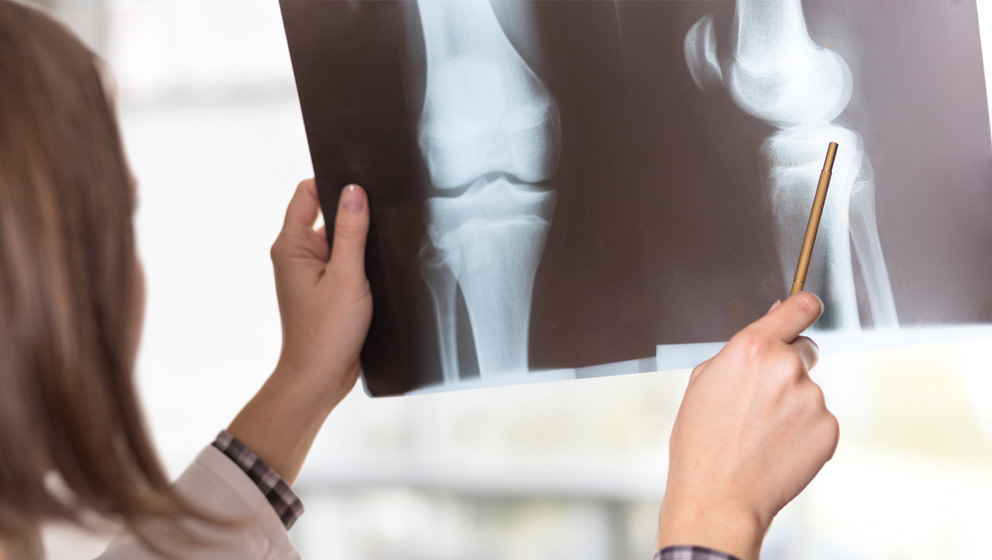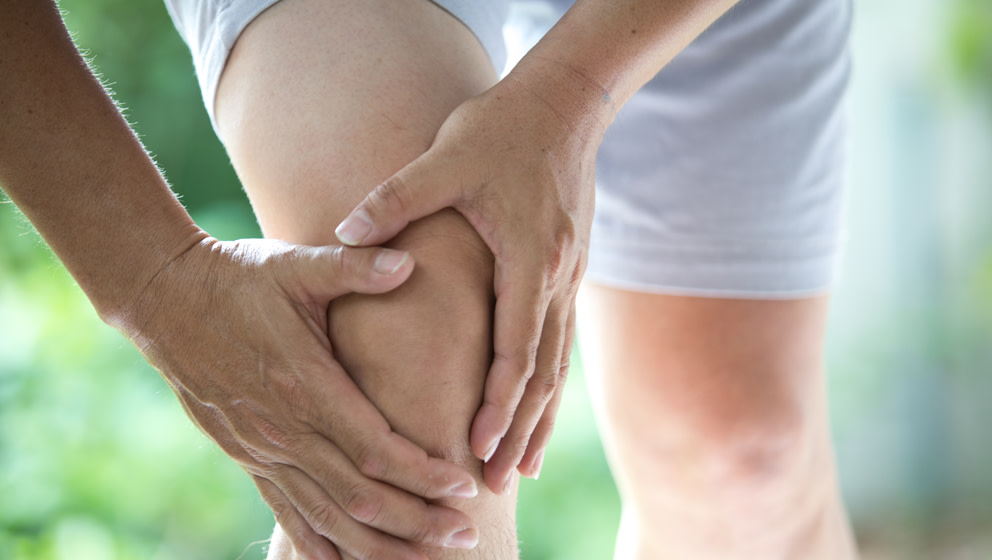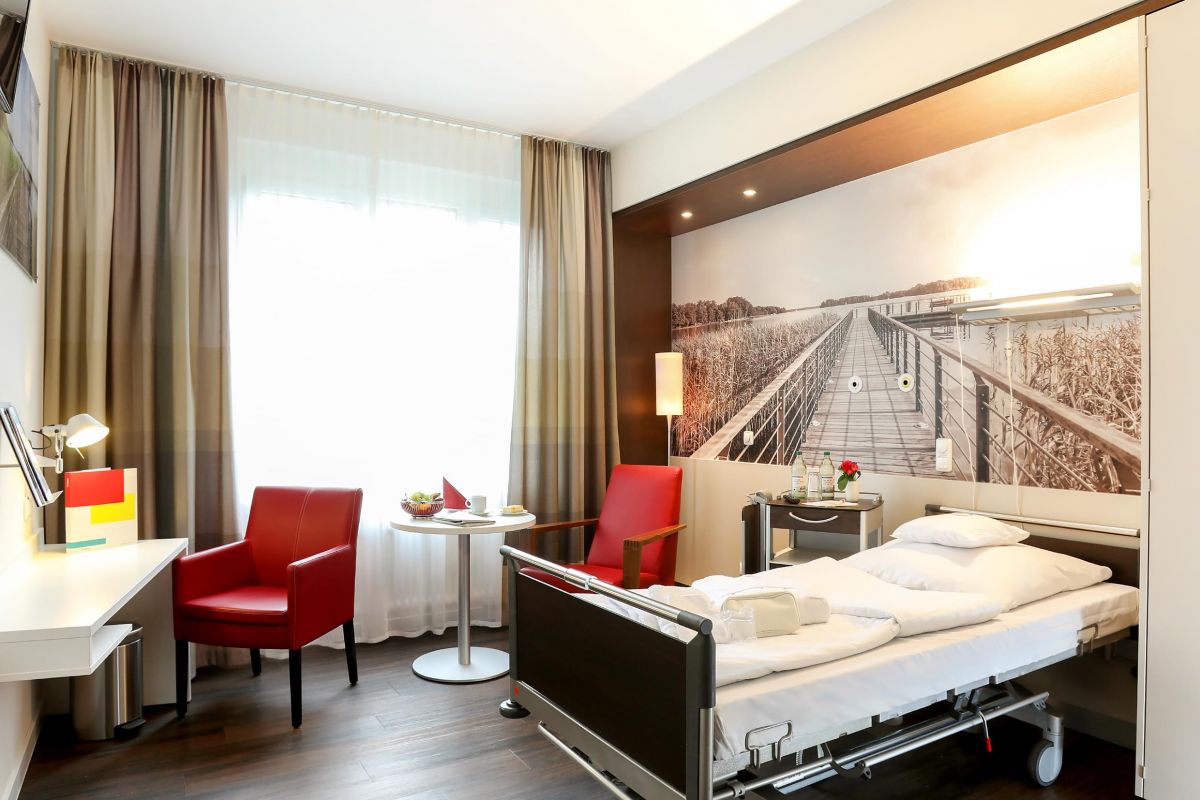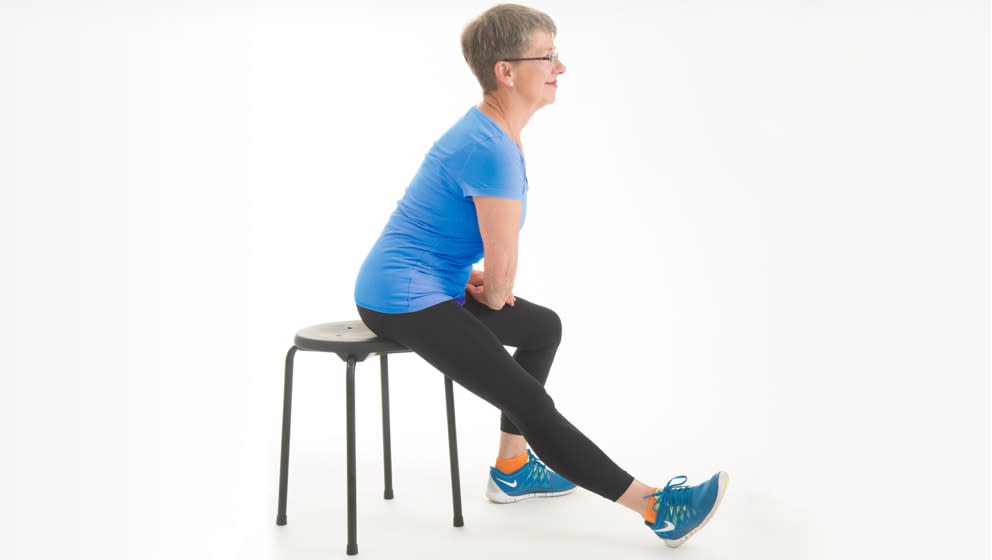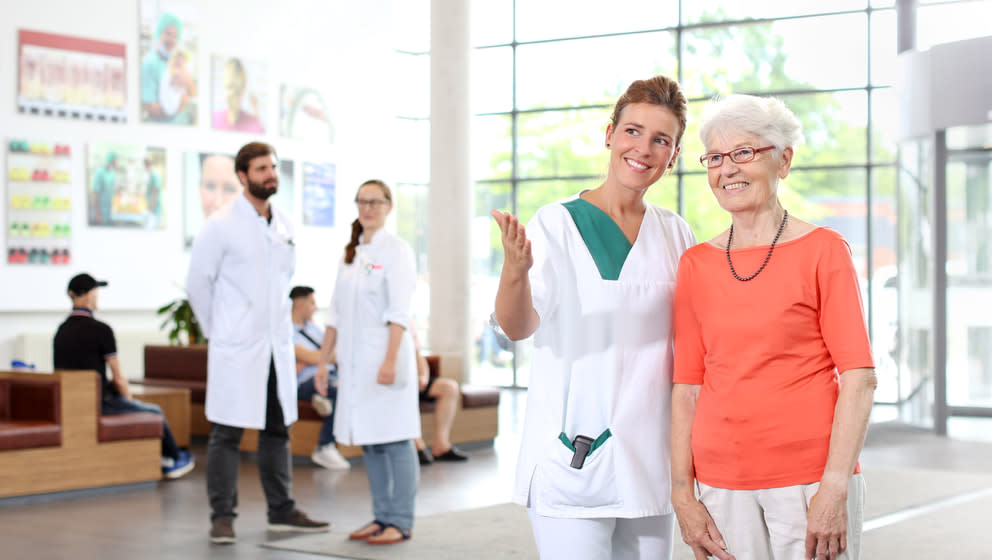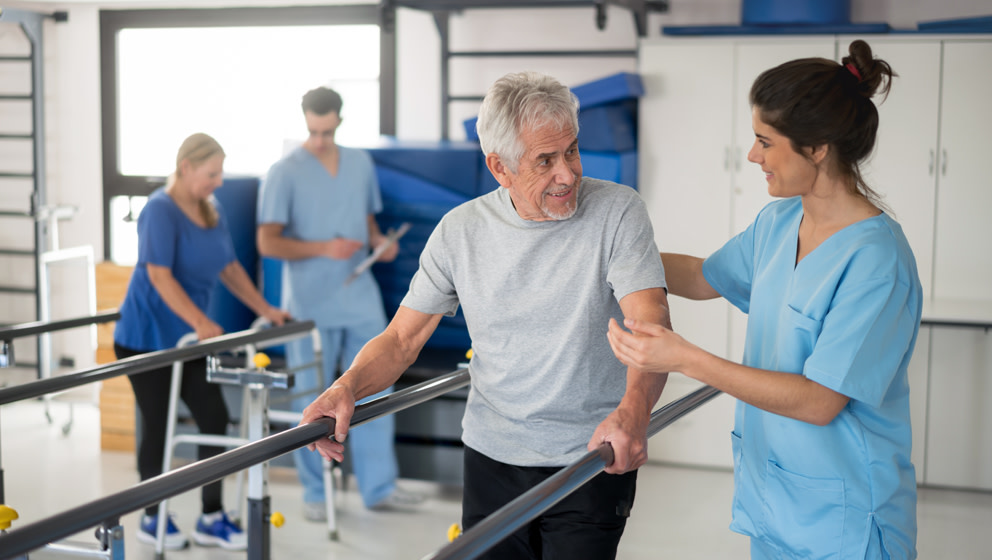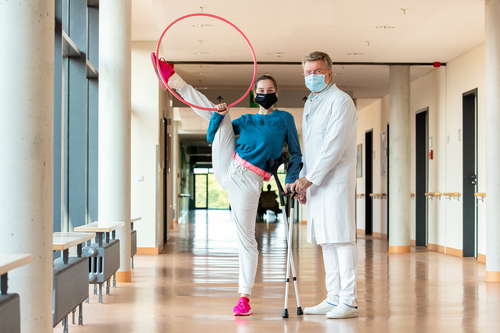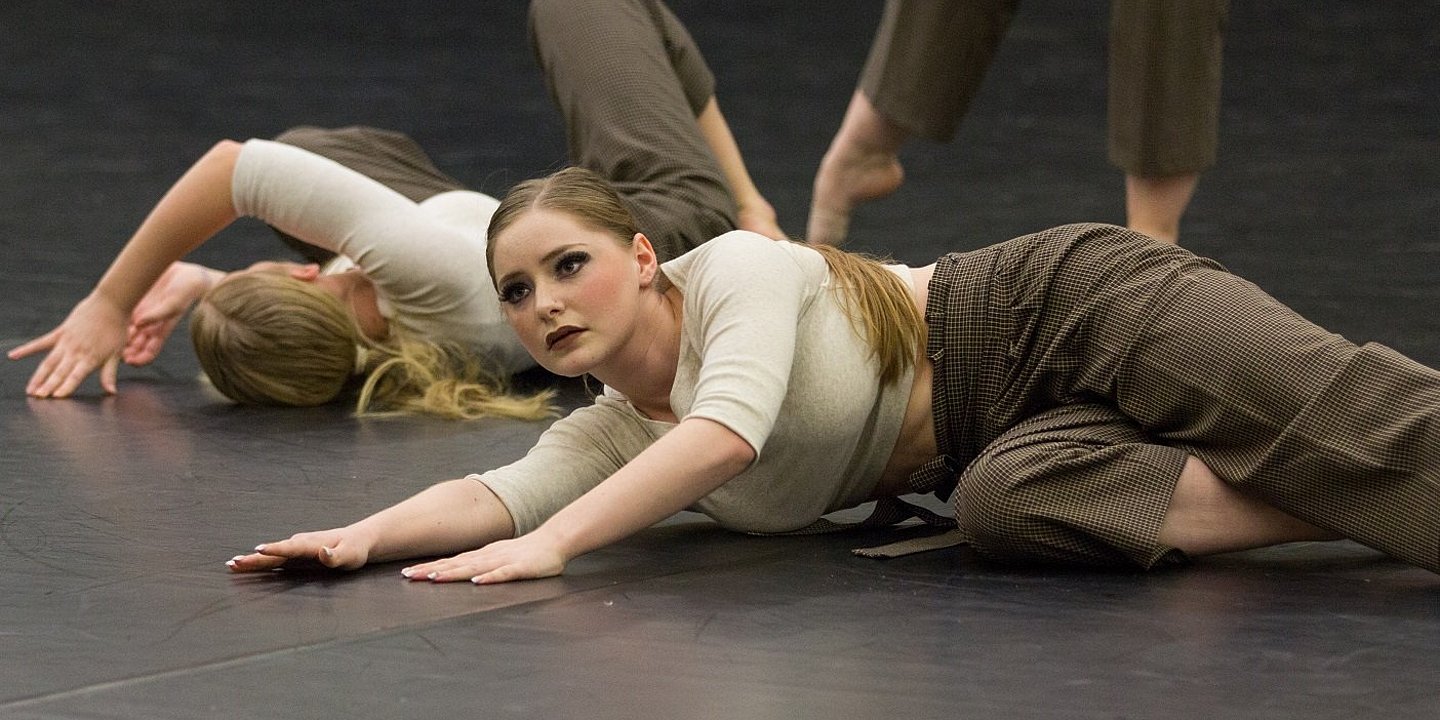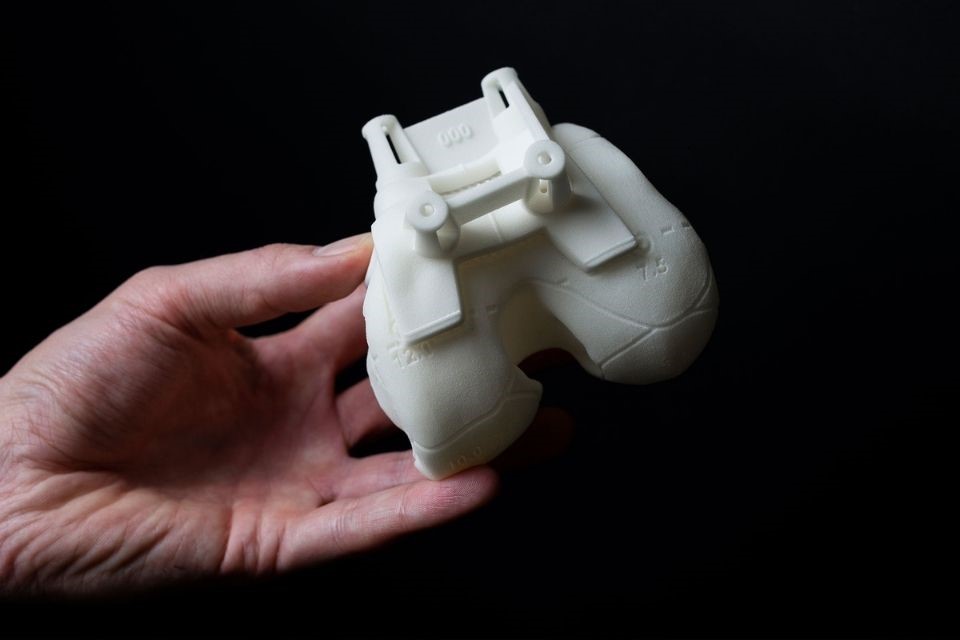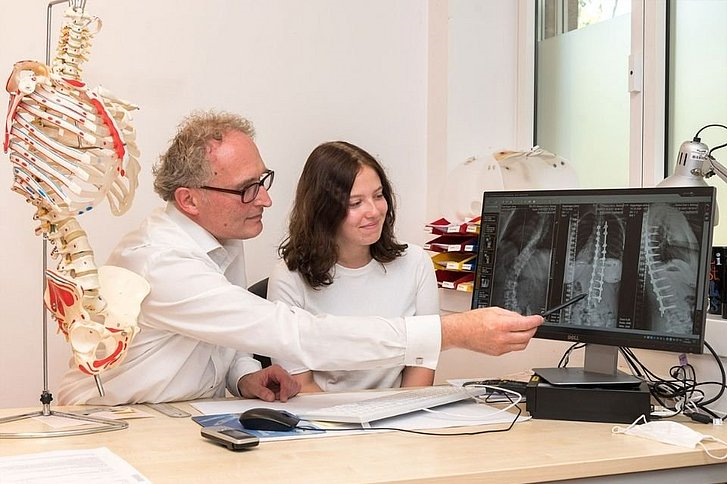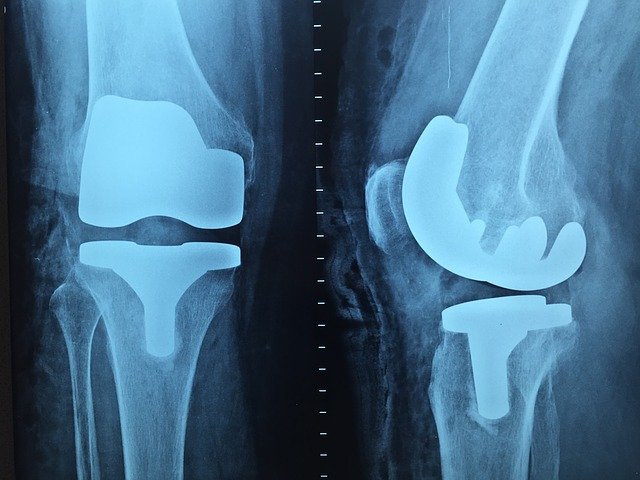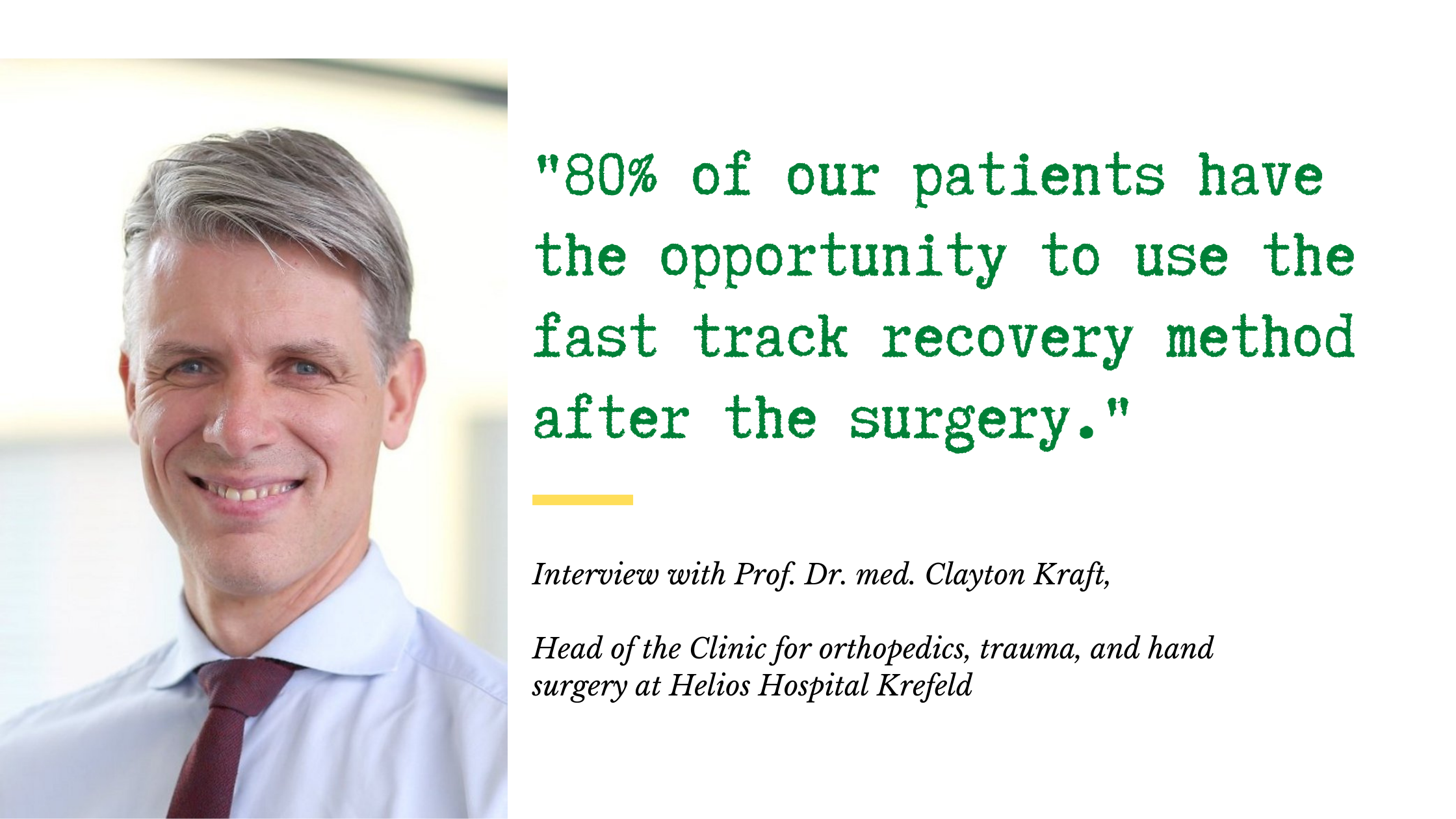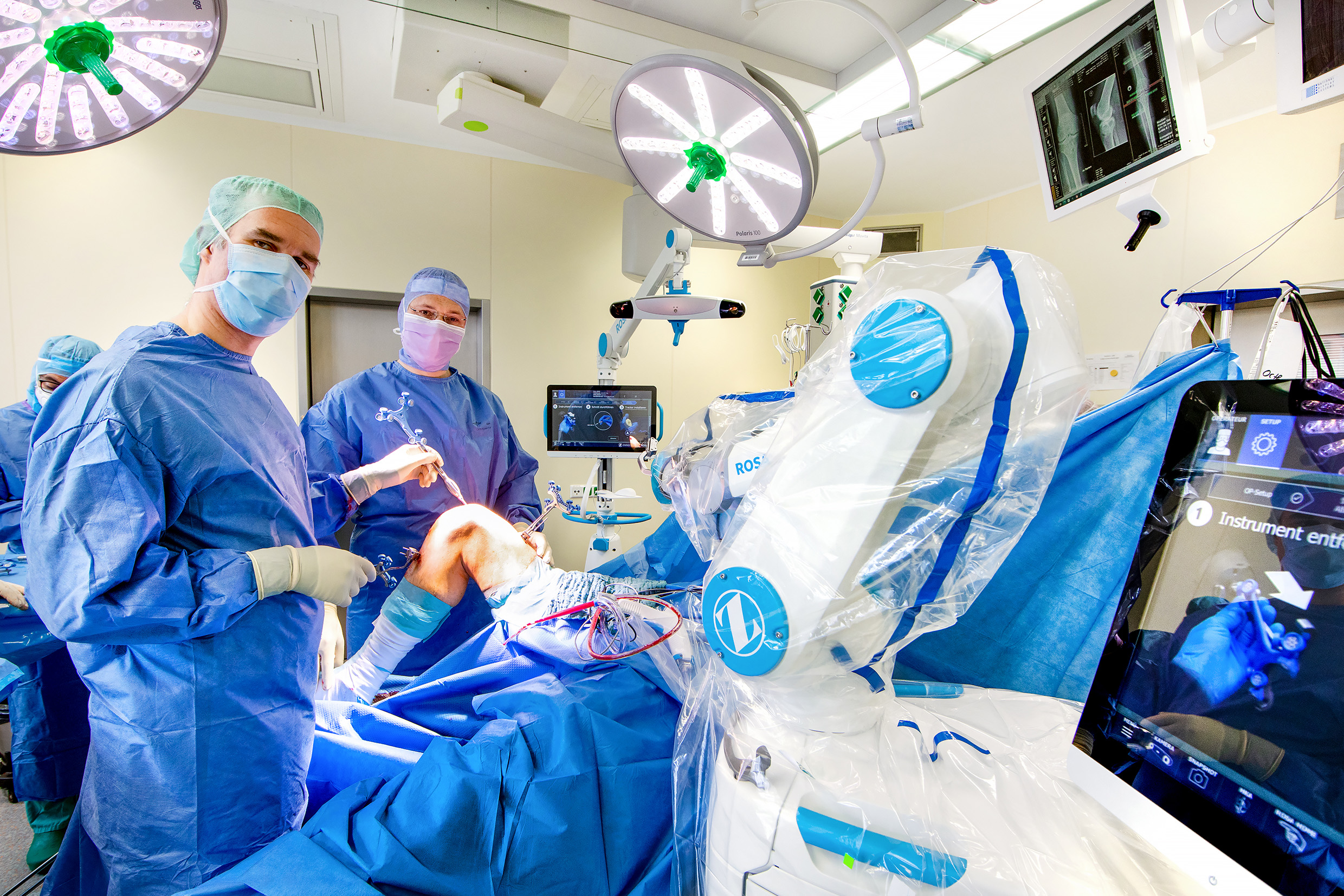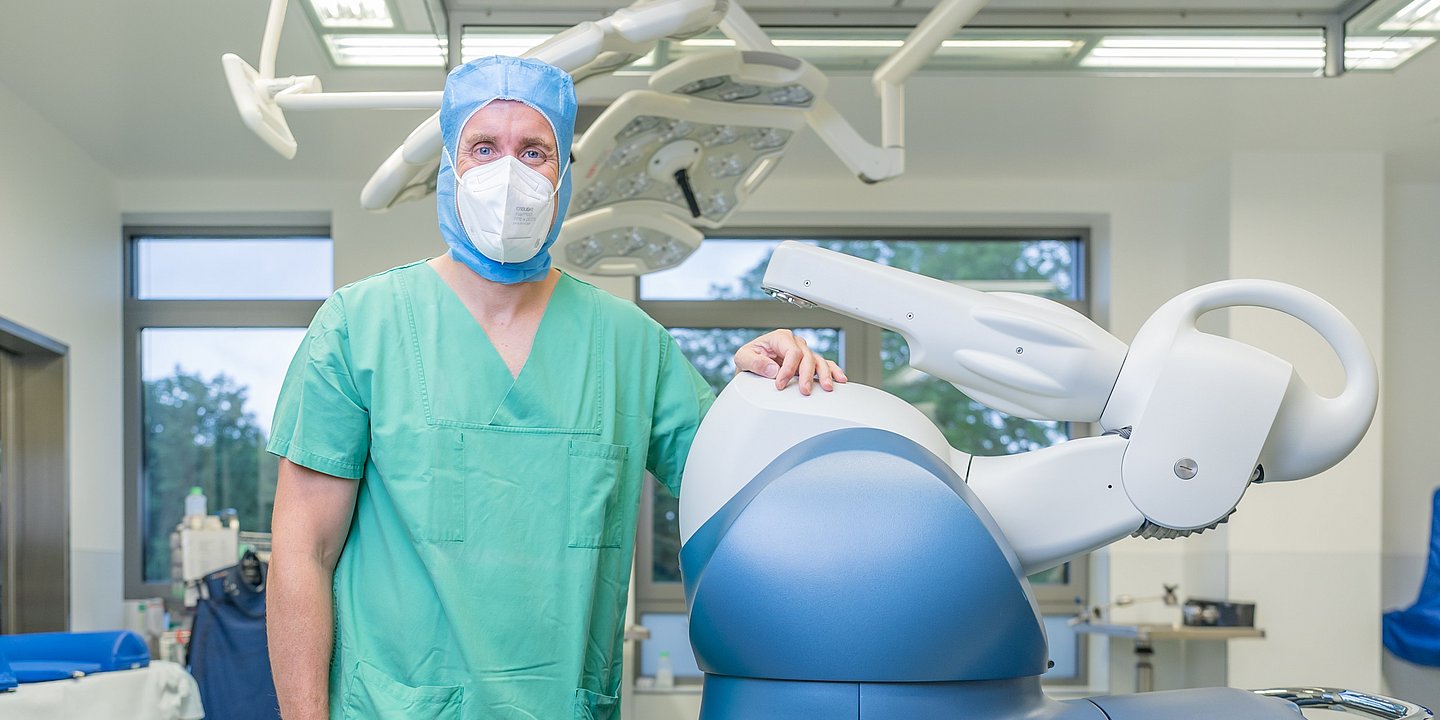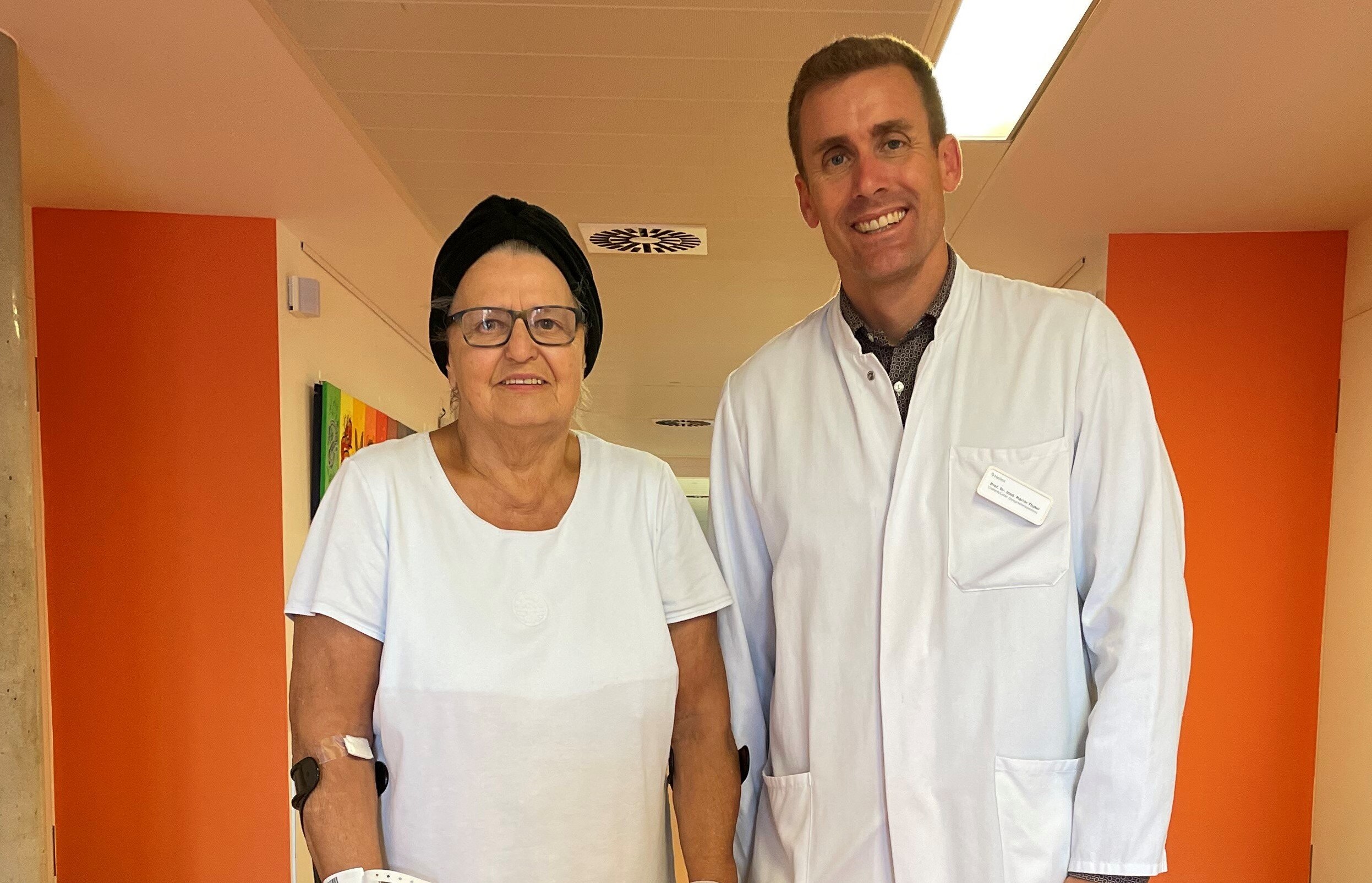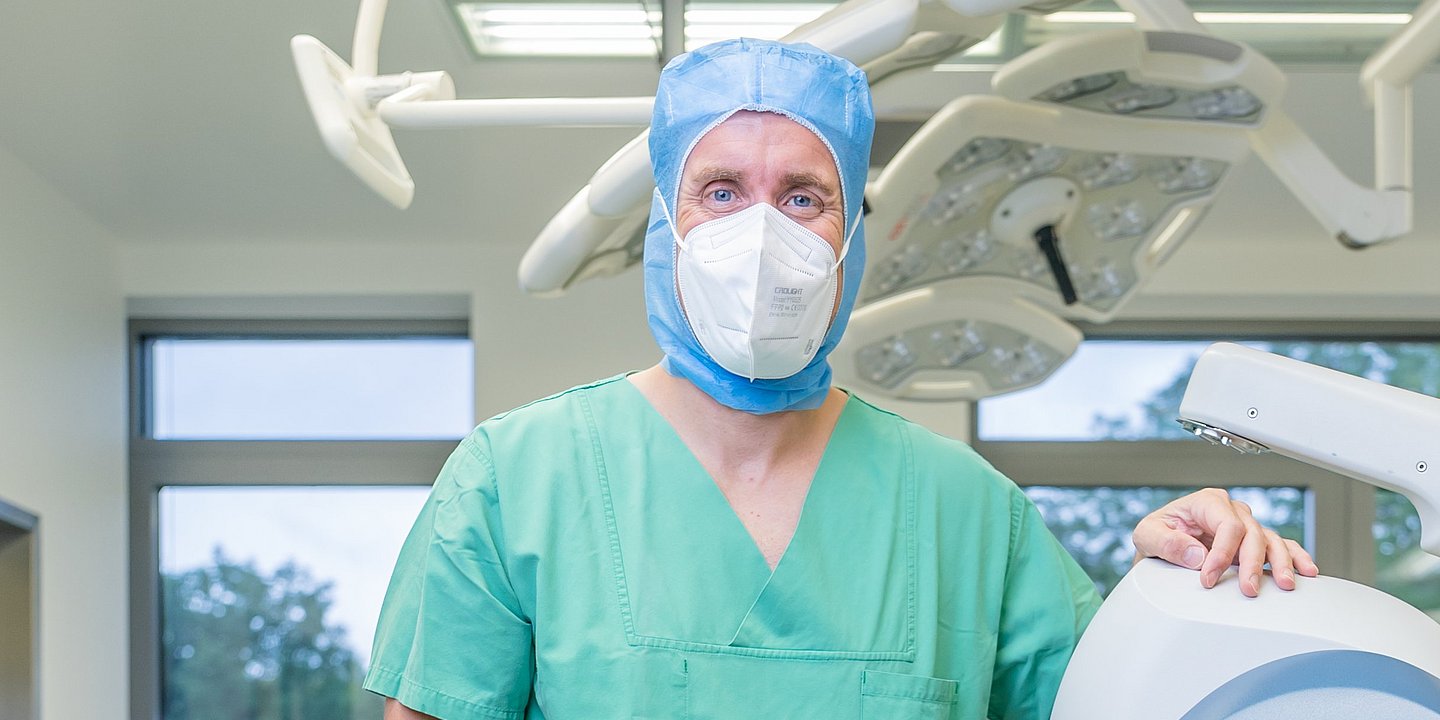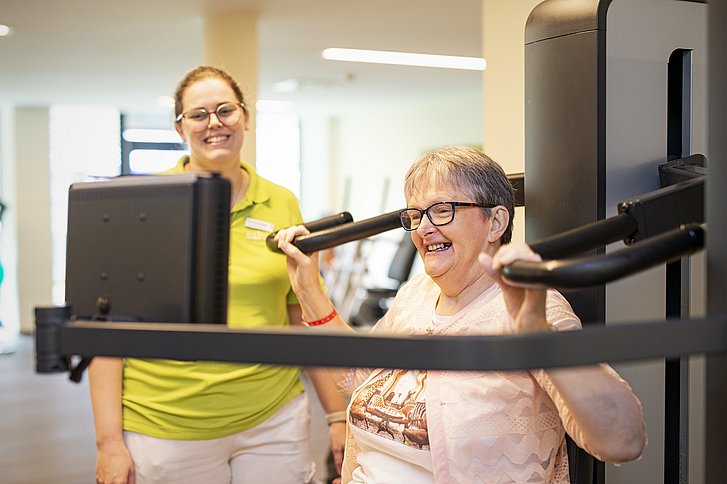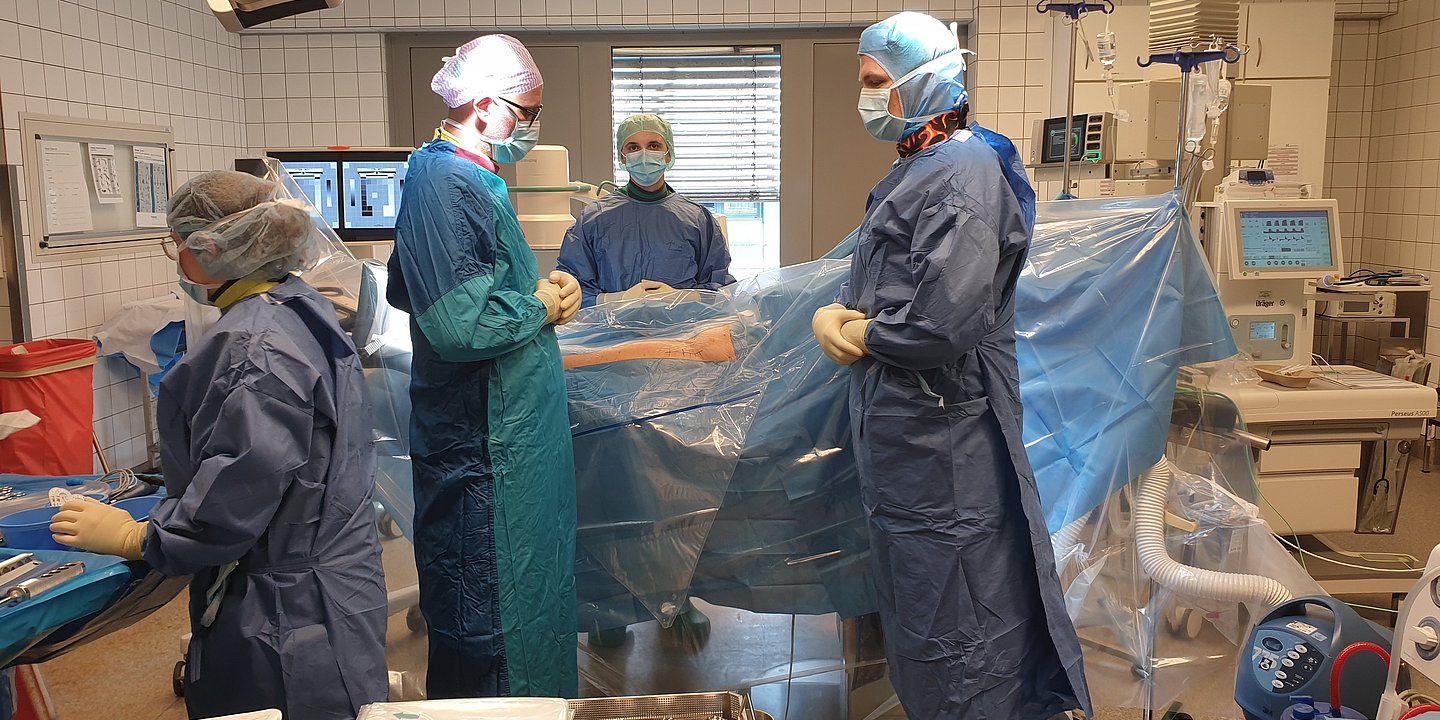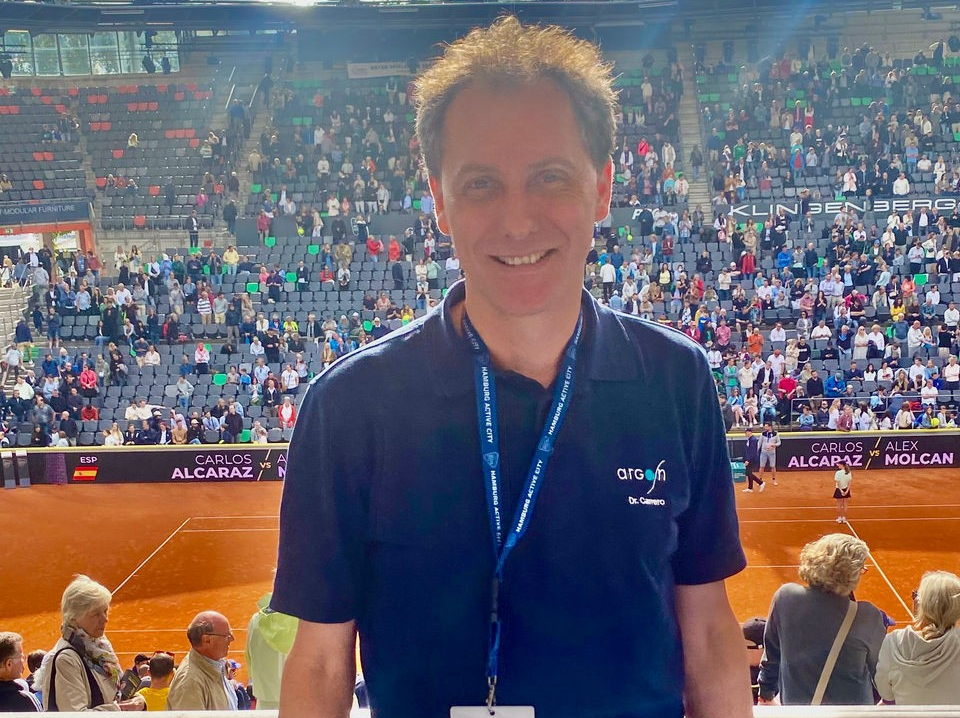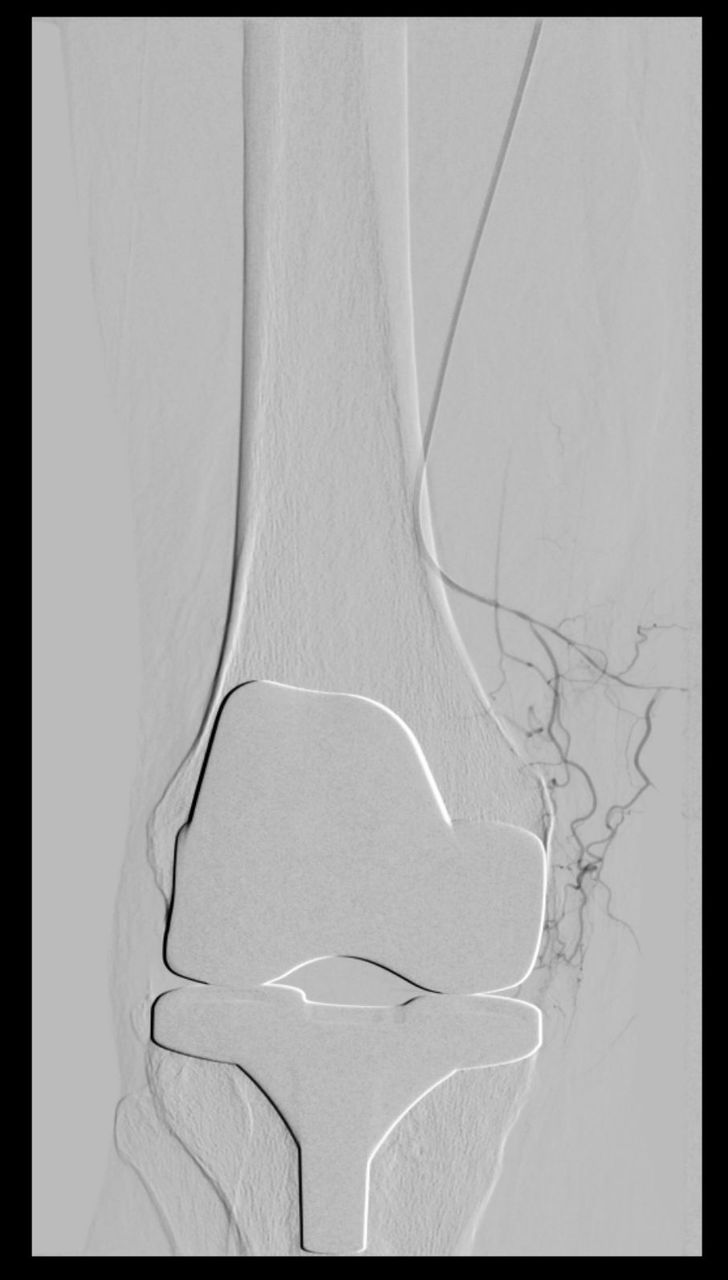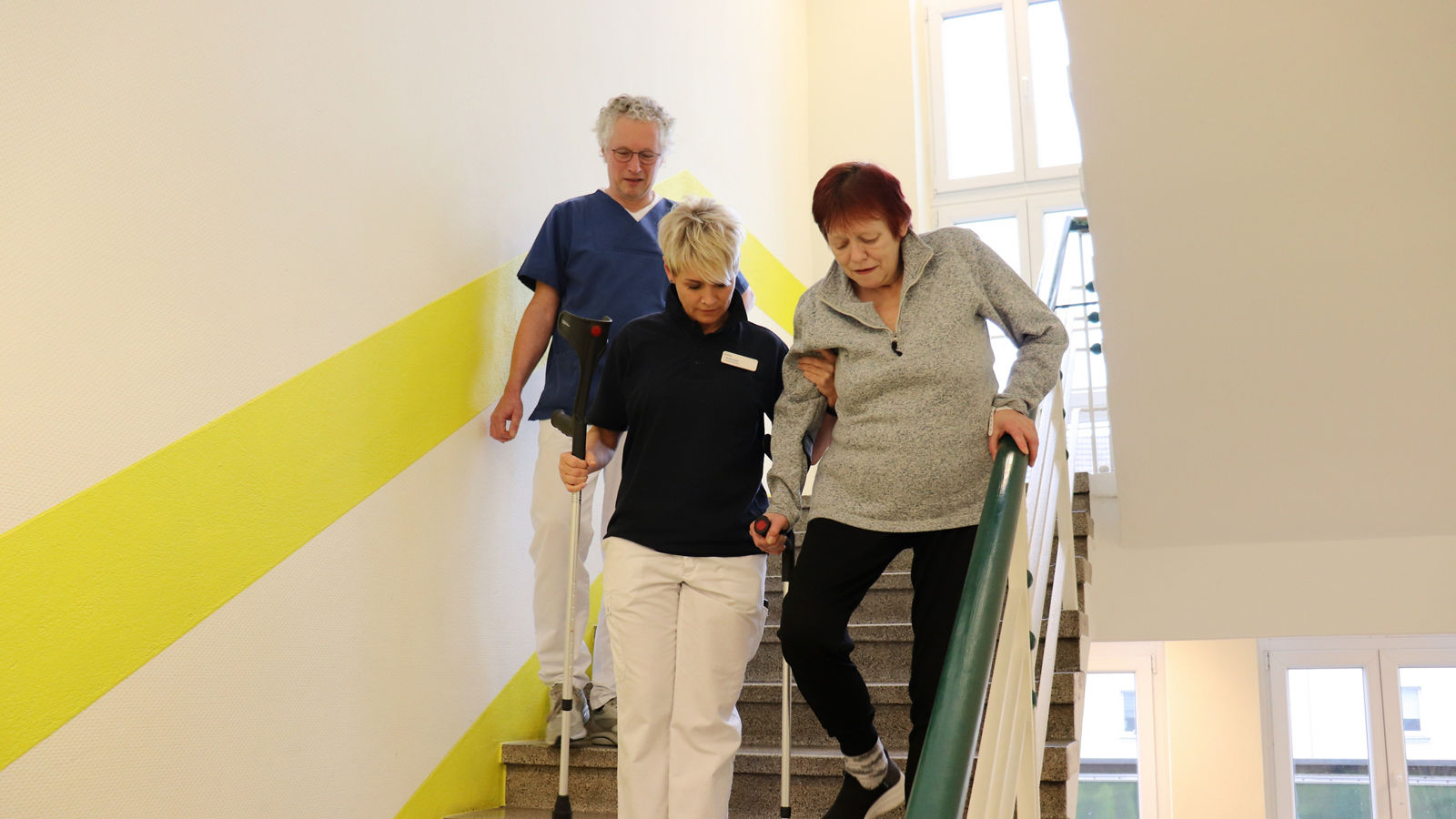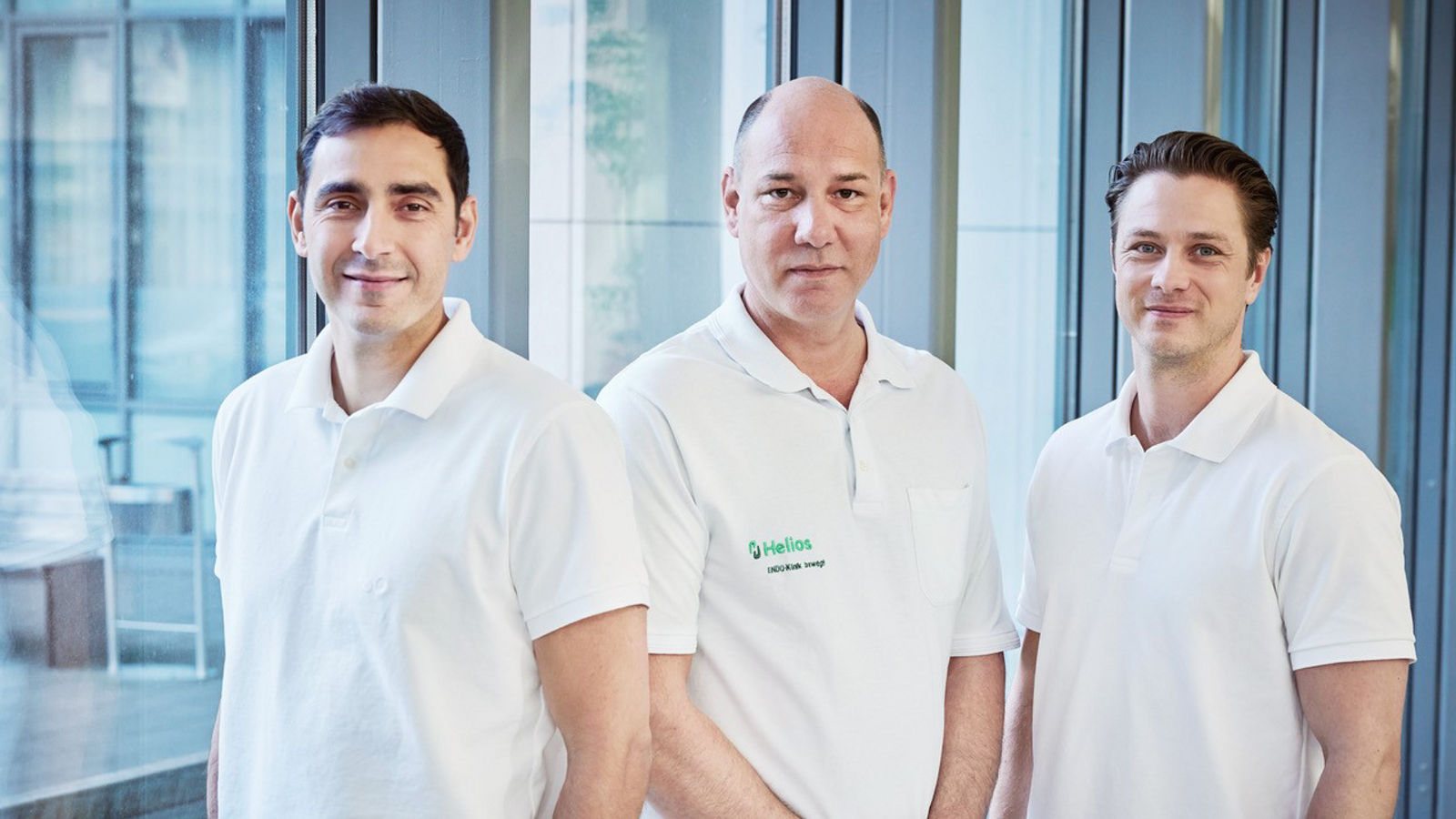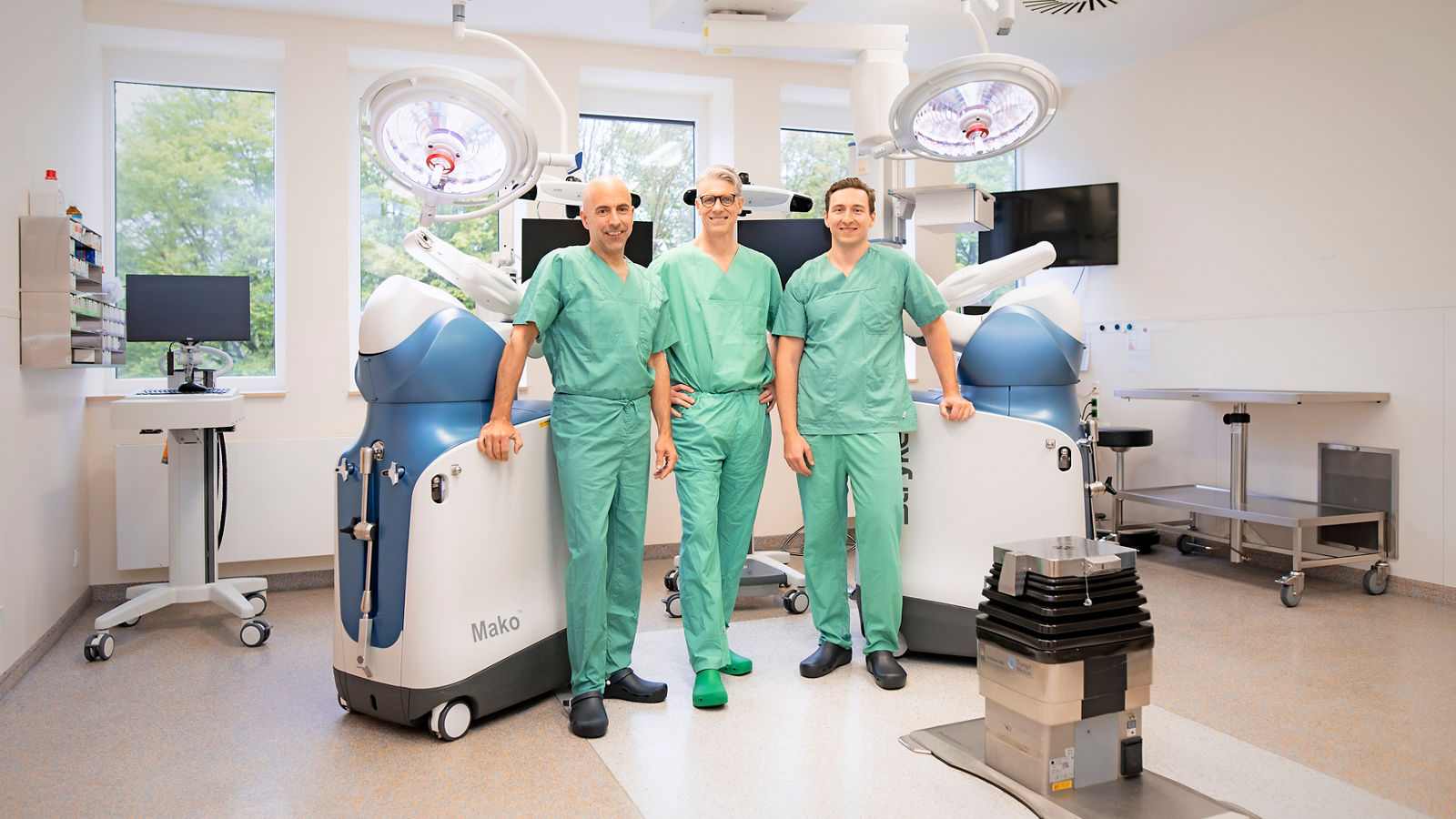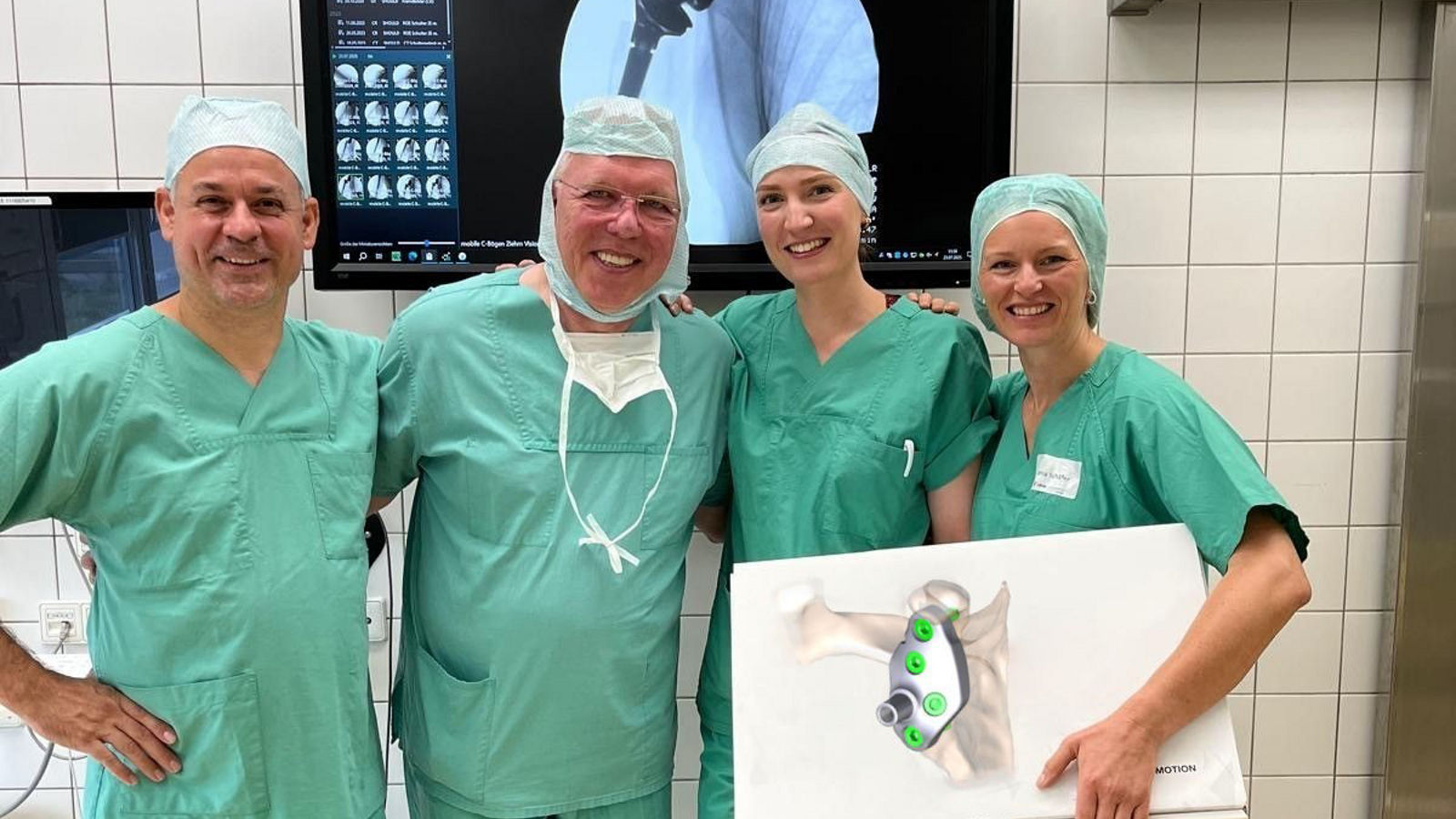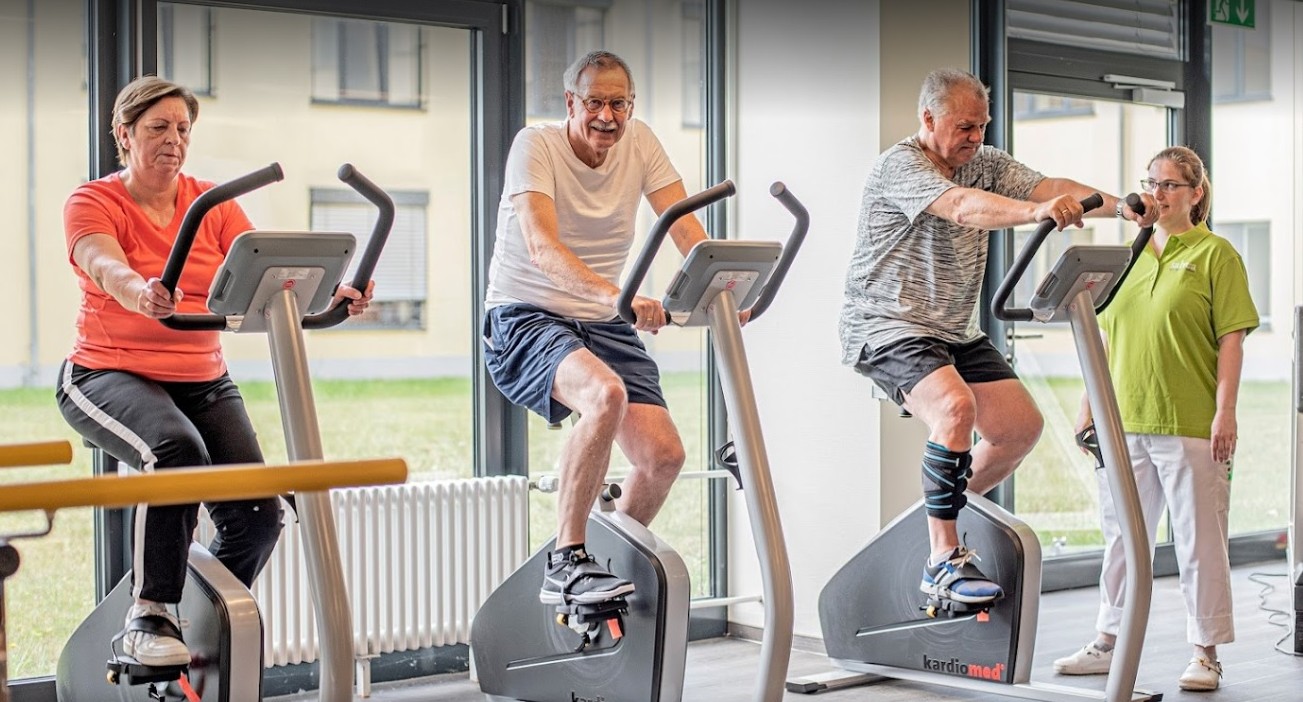
Krefeld: A modern treatment concept for hip and knee replacement surgeries
Advantages of performing surgery and undergoing rehabilitation in one place:
- Close cooperation and regular consultations between surgeons, doctors and physiotherapists regarding the treatment and recovery process of the patient
- No extra stress for patients: the patient is always under the supervision of a team that he/she trusts
- The surgeon also accompanies the patient during rehabilitation, ensuring effective information exchange and monitoring of the recovery process
- The solution of organizational issues is faster within one place.
The Ortho-Campus of Helios Cäcilien Hospital Hüls provides patients who need a new hip or knee joint with a wide range of services under one roof. At the Ortho-Campus, the medical team and therapists work together for the patient's benefit. Interdisciplinary collaboration not only saves organisational effort but additionally ensures a quicker recovery. We create an easy transition between surgical procedure and rehabilitation, presenting remedy from a single source, always aiming to put our patients on their feet as soon as possible.
At the Ortho-Campus we believe our patients are not “sick” in the usual sense. Our patients are usually suffering from quite natural processes and problems with their joints, which can be fixed with the help of joint replacement. As a result, we expect our patients to go back to their ordinary, active lifestyles as quickly as feasible instead of having to be in a hospital for an extended period of time.
Our innovative concept also includes, most important of all, the fast-track method.
How do our patients benefit from this method?
- Surgery preparation and all related procedures incl. a rehabilitation plan already during the first consultation (~2 weeks before surgery)
- All surgeries are carried out with modern and gentle methods to reduce a pain and provide patients with maximum comfort during and after surgery
- Physical activity and rehabilitation process start usually right after the surgery (based on individual conditions)
- Intensive rehabilitation process allows our patients to stand up on their feet and move in just a few days.
Endoprosthetics at the Ortho-Campus
Main focus: knee and hip replacement
Сommon causes: osteoarthritis, femoral neck fractures, hip dysplasia
Сommon causes of osteoarthritis: overweight, stress, lack of physical activity, previous meniscus or cruciate ligament surgeries, congenital deformities
Solution: arthroplasty
The treatment process
Consultation & preparation:
- 2 weeks before the surgery the patient usually comes to a consultation, which includes a guided tour of the facility.
- Preparatory seminar with all detailed information about the surgery & rehabilitation. The patient can attend the seminar together with his/her relatives. This familiar support is quite important both during the preparation process as well as during rehabilitation.
- During the seminar, the Ortho-Campus team presents a system of exercises for recovery and muscle development.
- "Home work" for patients: Improving the patient's physical flexibility and strengthening his/her cardiovascular system and respiratory tract before admission. The patient should prepare himself/herself for the upcoming rehabilitation after the orthopedic surgery. It is strongly recommended to avoid smoking or consuming alcohol weeks before the scheduled surgery.
Surgery:
Duration of knee and hip replacement surgery: 60 to 90 minutes
Anesthesia: yes
First rehabilitation: right after the surgery in the recovery room
Rehabilitation process for arthroplasty patients: special program with simple gymnastic exercises
Our medical team at Ortho-Campus
The orthopedic surgeons at Ortho-Campus perform up to 250 hip and 140 knee replacement surgeries a year. Elderly patients receive a comprehensive treatment plan from a medical team that includes specialists from different medical departments.
Overview of orthopedic surgeries we offer:
Minimally-invasive hip replacement
- Less-invasive approach (anterior hip replacement)
- Blood loss is minimized due to a smaller incision. After the operation, only a small scar remains.
- The muscles necessary for walking remain intact, respectively, postoperative rehabilitation is faster
- Protection from dislocation: intact muscles and tissues securely hold the new joint ball in the hole, preventing the joint from "slipping" (dislocation)
- Faster healing (DAA: direct anterior approach)
- Patients who have undergone minimally-invasive hip replacement surgery can start walking without auxiliary means in the first days after the operation
Individual Orthopedic Implants
- The Ortho-Campus uses different types of implants depending on the patient's age and state of health.
- We offer implants with both cement-free and cement-based fixation.
- Various types of implants can increase the load on the affected leg immediately after surgery, even at an advanced age.
- The operation can be performed either under general anesthesia or under spinal anesthesia, which reduces the load on the patient's cardiovascular system
- Physical activity under the guidance of physiotherapists begins immediately after surgery in the recovery room and continues for four to five days of hospital stay
- Fast and safe recovery under supervision
Knee Joint Replacment
- The Ortho-Campus uses different types of implants depending on the patient's age and state of health.
- In addition to traditional surgery, we also offer individual knee joint implantation (abbreviated PSI). The affected knee is accurately measured before surgery using magnetic resonance imaging (MRI). The axis of the leg is calculated and individual differences in the surface and shape of the bone are taken into account. Special software converts the MRI images into a three-dimensional model, which allows us to choose the right type of implant before surgery and make exactly the right templates.
Custom-Fit knee replacement
- The need for a partial joint replacement or a complete knee replacement is discussed and decided in advance, depending on the degree of wear and specific findings
- We mainly use implants with an anatomically optimized shape and high bending ability, which allows patients to maintain the mobility and function of the knee joint
- Custom-made knee implants (abbreviated PSI)
- The rehabilitation process begins immediately after the operation and continues for four to five days of hospital stay
Traditional knee replacement
- Traditional knee replacement operations without creating a 3D model after a preliminary full-fledged examination
- For a perfect fit of the new artificial joint, various implants are selected in advance, and the most suitable one is implanted during the operation
- Maximum preservation of muscles and tendons with the help of minimally invasive templates
- Fast recovery period after surgery under the supervision of a team of specialists
Fast-Track Concept
Our unique concept of fast recovery and a team of medical experts helps patients get back on their feet already in the first days after the operation.
Rehabilitation after the surgery
- The comprehensive concept of the Ortho-Campus ensures close coordination of surgery and rehabilitation for a comprehensive course of treatment for each patient. Rehabilitation takes place under the supervision of the chief physician, who also closely monitors the progress of recovery.
- Therapy sessions are selected individually and adapted with constant consultations with a team of doctors.
- The rehabilitation process starts right after the surgery
- Depending on how the patient feels, physical exercises range from short sequences of movements in bed to sitting or getting up with outside help.
- In order to avoid excessive stress, but at the same time encourage and challenge each patient, we work according to the principle "Each patient is given the time he needs".
- During a four-to five-day stay in the hospital, patients attend the first few sessions of physical therapy and receive support in gaining motor activity.
- These measures optimally prepare patients for further stages of rehabilitation and contribute to a quick and gentle recovery.
Inpatient Rehabilitation
Patients can also stay at the Ortho-Campus for further rehabilitation.
The range of services offered in the rehabilitation center:
* Rehabilitation under the supervision of an experienced team of medical professionals
* Physical therapy to improve mobility, activity and independence
* Physical exercises and sports therapy using training plans based on the patient's condition (for example, muscle development, ergometer and back training, as well as exercise programs based on indications)
* Manual therapy: connective tissue massage, foot reflexology and acupressure, lymphatic drainage and decongestant therapy, electrotherapy and thermotherapy.
* Support of psychological counseling, diagnostics and counseling, organization and conduct of relaxation therapy.
* Training and consulting services, regular lectures on health, nutrition tips, social consultations.
* Installation of auxiliary medical devices and instructions for proper use.
After discharge from the Ortho-Campus, patients are usually as ready as possible to return to normal daily life soon. For a complete recovery, we also recommend outpatient physical therapy and physical exercises after your stay at the Ortho-Campus.
Post-treatment and care after discharge: our recommendations
- Physiotherapy on an outpatient basis at Helios or an external physiotherapy facility
- The patient should temporarily avoid driving a car
- It is highly recommended to discuss your physical activities with your doctor. Suitable physical activity is quite important to recovery. Our team provides the patients with all information regarding aftercare and physical activities before and after the surgery.
- 6 months after the surgery we recommend a medical follow-up check-up. The patients can schedule it by an external orthopedist, but it is also possible to arrange an appointment with the attending doctor at the Ortho-Campus.
Read more:
Do you need more information about Helios Hospitals or want to schedule your treatment?

